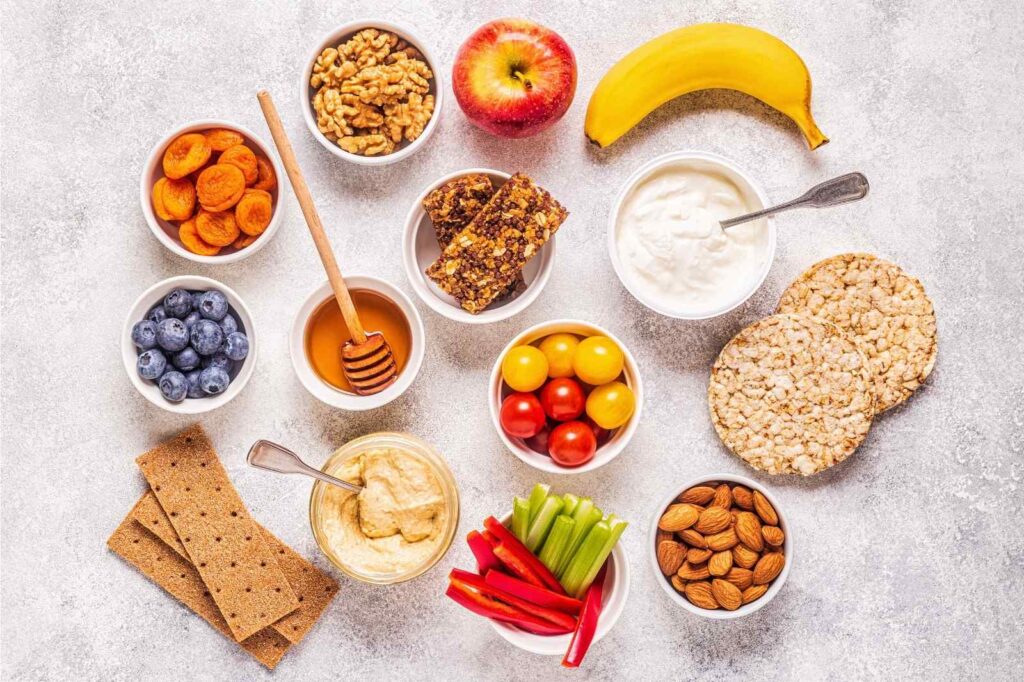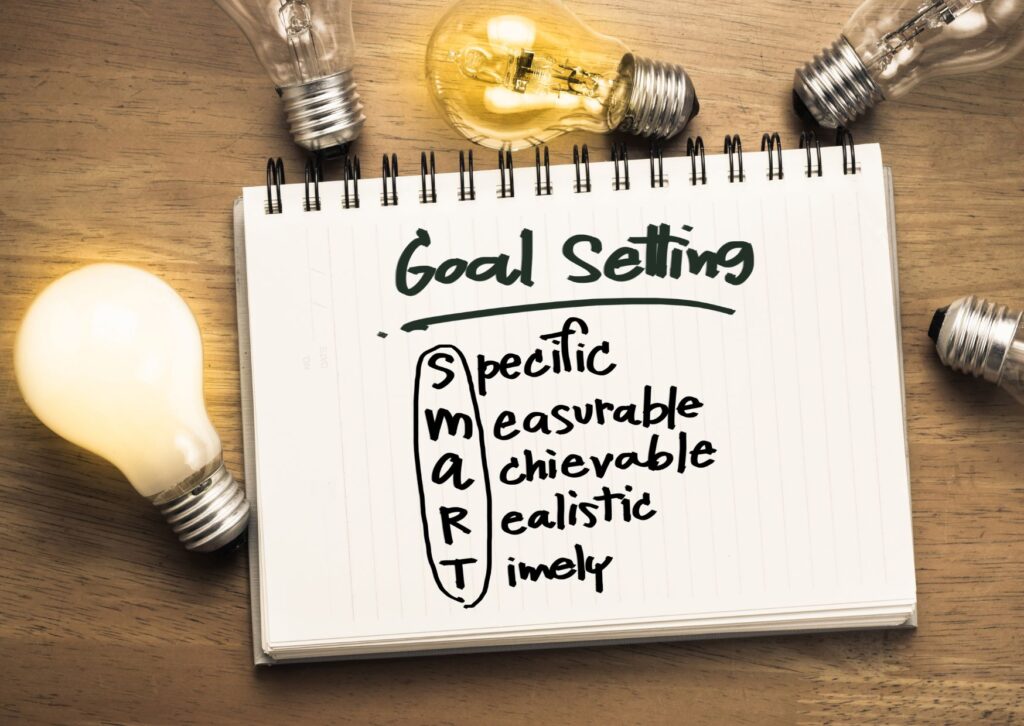Redefine Yourself: 20 Habits That Can Change Your Life
We’re all products of our habits.
Our daily routines, the little things we do, the choices we make—they’re all shaping who we are.
They’re steering us towards a future, whether we’re conscious of it or not.
But what if you had a roadmap to guide these habits?
What if you could strategically navigate towards a better you?
As a company who delivers wellbeing workshops on creating life changing habits we have a great understanding of how to successfully implement and stick with new habits.
In this blog, we’ll explore 20 life-changing habits that can redefine your life, steering it towards success, fulfillment, and happiness.
So, let’s embark on this transformative journey together!

20 Habits That Can Change Your Life
1.Practice Mindfulness
The world around us is always in motion—fast and restless.
Amidst this whirlwind of activities, practicing mindfulness can be a sanctuary and should be added to our list of habits.
Mindfulness is the process of deliberately focusing on the present moment without judgment.
It’s a simple yet powerful practice that fosters peace of mind, reduces stress, and enhances emotional resilience.
How to start: Starting a mindfulness practice is as simple as taking out five minutes from your day.
Choose a quiet spot, sit comfortably, and close your eyes.
Focus on your breath. Pay attention to your thoughts and emotions without any judgement.
Just five minutes a day can set the foundation for a more mindful life.
2. Daily Journaling
Writing might seem like a chore to some, but the benefits of daily journaling extend far beyond better writing skills.
Journaling is a gateway to self-exploration.
It allows you to track your personal growth, understand your emotions better, and even boost your memory.
Additionally, it also helps in enhancing self-discipline and communication skills.
How to start: All you need is a pen and a notebook. Dedicate a few minutes each day to jot down your thoughts, ideas, or emotions.
You can write about your day, reflect on a memory, or plan your future actions. There are no rules—it’s your personal space.

3. Cold Showers
Yes, cold showers!
It may sound daunting, but the benefits of this habit are plentiful.
Taking cold showers has been linked to increased alertness, enhanced mood, improved skin and hair health, and even boosted immunity.
Why not challenge yourself and commit to 30 days of cold showers.
As the Iceman Wim Hof says “A cold shower a day keeps the doctor away”
How to start: Start by concluding your regular warm shower with a blast of cold water for 15 seconds.
Over time, you can increase the duration.
If you’re looking for a beginners guide, this eBook on 30 days of cold showers could be your perfect companion.

4. Regular Exercise
We’ve all heard about the benefits of regular exercise.
Yet, it’s often a habit that’s neglected.
Exercise can drastically improve your health, increase your energy levels, enhance your mood, and even add years to your life.
How to start: You don’t need a gym membership to start exercising.
Begin with a 15-minute walk or simple at-home exercises.
Gradually, you can add more activities to your routine, ensuring it’s something you enjoy and can maintain in the long term.

5. Healthy Eating
The old adage “you are what you eat” holds significant truth.
Our diet impacts our physical and mental health profoundly.
Incorporating more fruits, vegetables, lean proteins, and whole grains into your diet can lead to increased energy, better mood, and improved overall health.
How to start: Transitioning to a healthy diet doesn’t have to be a sudden overhaul.
Begin by incorporating a fruit or vegetable into every meal.
Try experimenting with different recipes to keep your meals exciting.
As time goes on, you can gradually shift towards more nutritious choices.

6. Cultivate Gratitude
Gratitude is more than just saying “thank you”—it’s a mindset, a way of seeing and appreciating the good in our lives.
By focusing on the positives, we shift our attention away from negatives, which can have a profound impact on our wellbeing.
Regularly practicing gratitude can improve our mental health, enhance empathy, reduce aggression, and even improve sleep.
Gratitude helps us realise that even in tough times, there’s always something to be thankful for.
This shift in perspective can enhance resilience, create inner peace, and increase life satisfaction.
How to start: Incorporate gratitude into your daily routine.
It could be as simple as acknowledging a beautiful sunrise, a good cup of coffee, or a kind act from a stranger.
Consider keeping a gratitude journal—each night, write down three things you’re grateful for.
They don’t have to be big, even seemingly small blessings count.
Make it a habit to express gratitude to others.
Not only will it make them feel appreciated, but it will also reinforce your sense of gratitude.
Over time, practicing gratitude can help you see the world in a more positive light, making you more resilient and content.
By cultivating gratitude, you’re choosing to focus on the abundance in your life rather than on scarcity. It’s a simple habit, but its impact on your life can be profound
7. Reading
In the age of digital media, the habit of reading might seem outdated.
But the benefits of reading regularly are manifold – improved knowledge, better concentration, enhanced creativity, and even reduced stress.
How to start: Choose a book that interests you and dedicate a few minutes each day to read.
Even a page a day can open up a world of wisdom.
Watching book review podcasts like The Power of Pages can help to motivate and inspire you to read.

8. Maintain a Sleep Schedule
In our hectic world, sleep can often be pushed aside.
However, adequate and regular sleep is as crucial to our health and wellbeing as a balanced diet and regular exercise.
Sleep deprivation can lead to impaired cognitive function, mood swings, weakened immunity, and long-term health problems like heart disease and diabetes.
On the other hand, a regular sleep schedule can enhance memory, increase alertness, reduce stress, and even boost your mood.
How to start: Try to establish a regular sleep schedule where you go to bed and wake up at the same time every day, including weekends.
Create a relaxing pre-bed routine—this could include activities such as reading, taking a warm bath, or practicing gentle yoga.
Limit exposure to screens before bedtime, and create a sleep-friendly environment in your room—dark, quiet, and cool. Remember, consistency is key.

9. Learn Something New
The pursuit of knowledge doesn’t stop at school—it’s a lifelong journey.
Lifelong learning not only contributes to personal growth and self-improvement but also keeps your mind sharp.
It opens up new perspectives, boosts creativity, increases adaptability, and contributes to a sense of accomplishment.
How to start: Identify a topic or skill that you’re curious about—it could be anything from a foreign language, a musical instrument, digital marketing, painting, or even astronomy.
Set aside some dedicated time each week to delve into this new learning.
You could enroll in an online course, read books, listen to podcasts, or join a local class or club.
The key is to engage in active learning—learning that stimulates your mind and challenges you.

10. Socialise
Humans are social creatures by nature.
Good social relationships can contribute to improved mental and physical health, increased happiness, and even longevity.
Quality social interactions can provide emotional support, increase feelings of belonging, and help reduce stress.
Conversely, social isolation can lead to loneliness and have a negative impact on health and wellbeing.
How to start: Make an effort to start this habit by connecting with someone in your life every day.
This could be a phone call to a family member, a coffee catch-up with a friend, or even a heartfelt conversation with a loved one.
Consider joining clubs or groups where you can meet people with shared interests.
You could also explore volunteering opportunities in your community—it’s a great way to give back and build social connections.
Remember, it’s the quality of your social interactions, not the quantity, that matters most.
11. Practice Deep Breathing
In our daily grind, it’s easy to forget the power of something as simple as our breath.
Deep breathing is an immediate route to calmness, providing an instant stress-busting effect.
It’s a tranquilizer for the nervous system, sending signals to your brain to slow down, leading to improved focus and a state of peace.
Implementing deep breathing habits is often overlooked.
How to start: Whenever you’re feeling overwhelmed or stressed, pause and turn your attention to your breath.
Draw in a deep breath, hold for a few seconds, and then slowly exhale.
Aim to do this for a couple of minutes, gradually increasing the duration over time.
You can also incorporate deep breathing into your daily routine, perhaps in the morning or before bed, to start and end your day calmly.

12. Limit Screen Time
Our screens have become constant companions, but they can also act as barriers to human connection and self-care.
Overexposure to screens can lead to a range of issues, from physical strain to psychological stress.
Overusing screens is a bad habit that many of us have adopted.
By managing our screen time, we allow ourselves more time to engage with the world around us actively.
How to start: Implement designated screen-free periods in your daily routine, perhaps during meals or the last hour before bed.
Consider apps that track your screen time and help you set limits.
Aim for balance—technology has its benefits, but it’s crucial to disconnect and step back into the real world regularly.
13. Set Clear Goals
Setting clear, achievable goals is like crafting your road map for the future.
It gives you direction, provides motivation, and serves as a barometer for your progress.
Goals encourage self-discipline, keep you focused and increase your sense of self-confidence as you tick off your achievements.
How to start: Spend some time reflecting on what you want in different areas of your life—personal growth, career, relationships, health, etc.
Formulate these into SMART goals – Specific, Measurable, Achievable, Relevant, and Time-bound.
Write them down and review them regularly to keep your path to success clear and focused.

14. Practice Self-Care
Amid our responsibilities and commitments, it’s easy to overlook the importance of self-care.
However, taking care of our physical, emotional, and mental health is vital.
Self-care fosters resilience against stress, enhances self-esteem, and nurtures a healthy relationship with oneself.
It’s an important habit to implement.
How to start: Carve out a little time each day just for you—it could be as simple as sipping a cup of tea in silence, taking a leisurely bath, reading a book, or going for a walk.
This is not about indulgence; it’s about nourishing yourself to face life’s challenges with a well-rounded, healthy perspective.
Why not check out our blog “10 Loveable Self-Care Activities for Team Meetings“

15. Learn to Say No
While it’s great to be helpful and accommodating, constantly saying ‘yes’ can lead to stress, burnout, and even resentment.
Learning to say ‘no’ when needed is crucial for maintaining a healthy balance in life.
It allows you to respect your boundaries and makes room for your priorities.
How to start: The next time you’re asked to do something, pause and evaluate.
Does it align with your priorities?
Will it impose on your self-care or overwhelm your schedule?
If so, it’s perfectly fine to politely decline. Remember, saying ‘no’ to others often means saying ‘yes’ to yourself.

16. Spend Time in Nature
Habits that involve nature have a unique way of calming our minds, uplifting our spirits, and recharging our bodies.
Time spent in natural environments has been linked to lower stress levels, improved mood, and enhanced cognitive function. Plus, it’s an enjoyable way to keep active.
How to start: Start this habit by dedicating a portion of your week to outdoor activities.
It could be a relaxing walk in a park, a weekend hike, gardening, or even a picnic by the lake.
The aim is to immerse yourself in nature, breathe in fresh air, and disconnect from the hustle and bustle of daily life.
The more you engage with the natural world, the more you’ll appreciate its calming, rejuvenating effects.
17. Unplug Regularly
We’re living in a digital era where our lives are entwined with technology.
While it has its benefits, it can also lead to mental clutter, stress, and burnout.
Unplugging regularly allows us to break free from the constant influx of information and stimuli, helping us relax, rejuvenate, and reconnect with ourselves.
How to start: Begin by setting ‘digital-free’ periods each day. It could be during meal times or an hour before bed.
Try unplugging for longer periods over the weekend. Use this time for activities that refresh your mind and spirit, like reading, painting, or spending time with loved ones.
Embrace the quiet, enjoy the solitude, and experience the richness of the non-digital world.
18. Cultivate a Positive Mindset
Our mindset shapes our perspectives and reactions to life events.
Cultivating a positive mindset doesn’t mean ignoring life’s problems—it means approaching them with a more positive and productive attitude.
A positive mindset can boost resilience, improve health, and enhance overall life satisfaction.
Approaching positivity as a daily habit helps you to maintain a positive outlook on life.
How to start: Every day, aim to identify the good in your life, no matter how small.
Practice positive self-talk and challenge any negative thoughts that arise.
Surround yourself with positive influences—people, books, music, anything that uplifts your spirits.
A positive mindset isn’t built overnight, but with consistency and patience, it can become your second nature.

19. Prioritise Personal Growth
Personal growth is an ongoing journey of self-discovery and improvement.
It’s one of the best habits you can implement for yourself.
It involves improving self-awareness, developing talents, building potential, and leading a fulfilling life.
Prioritising personal growth allows you to live consciously, purposefully, and authentically.
How to start: Set personal growth goals, such as learning a new skill, reading more, practicing mindfulness, or even working on your emotional intelligence.
Engage in activities that challenge you and take you out of your comfort zone.
Seek feedback from others and be open to new ideas and perspectives.
Remember, personal growth is a journey, not a destination—enjoy the process of becoming the best version of yourself.
20. Make Your Bed
Simple habits like this might seem insignificant in the grand scheme of things, but starting your day by making your bed can set a positive tone for the rest of the day.
It’s a small accomplishment that provides a sense of pride and order, leading to increased productivity.
This habit not only instils discipline but also gives you a sense of control over your life.
Plus, there’s nothing quite like coming home to a neat, made bed after a long day.
How to start: Incorporate bed-making into your morning routine, preferably right after you get up.
Make it a mindful process—straighten the sheets, fluff the pillows, arrange the comforter.
Enjoy the sense of accomplishment you feel upon completing the task.
If you live with others, you could encourage them to adopt this habit too, contributing to a tidy and harmonious living environment.
With time, this simple daily habit can ripple into other areas of your life, encouraging cleanliness, order, and discipline.

Remember, creating life-changing habits is all about small, consistent steps toward a healthier, happier, more fulfilling life.
Start with one habit, master it, and then move onto the next.
Before you know it, these habits will become second nature, steadily transforming your life for the better.

